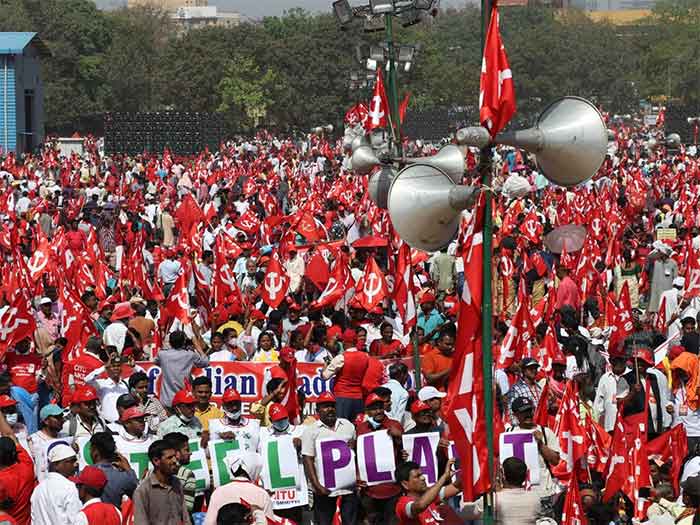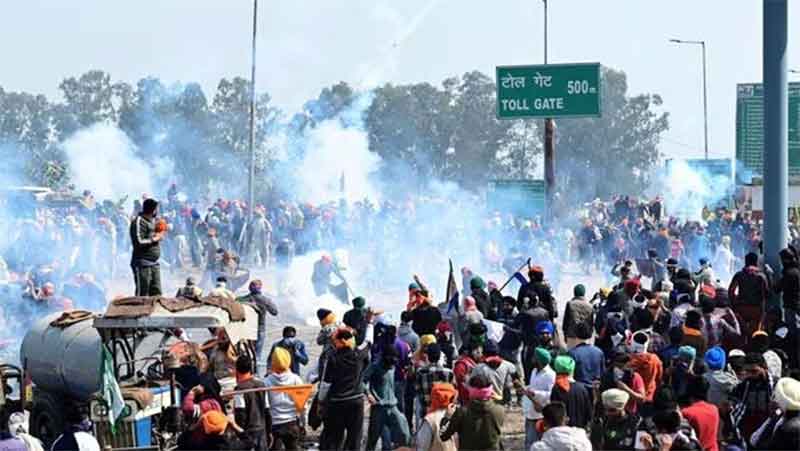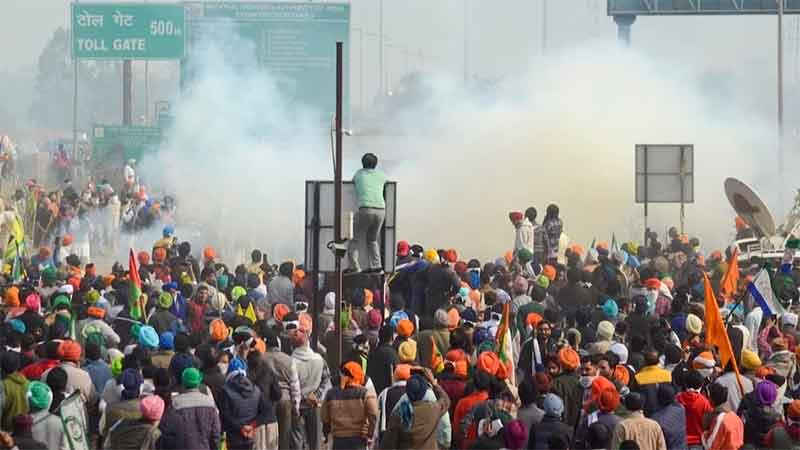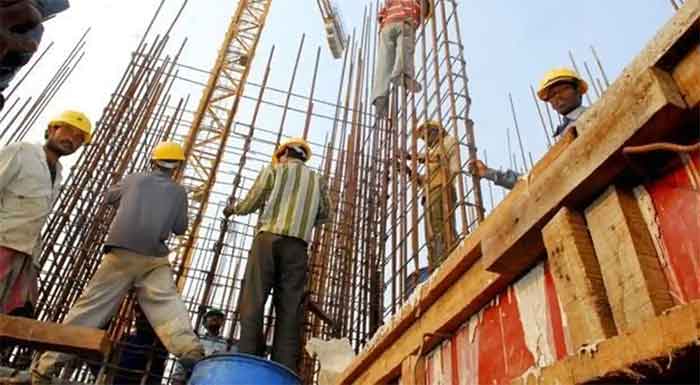
The impressive mobilization of farmers, farm workers and other workers from all over the country in Delhi on April 5 for focusing attention on their problems and several unhelpful policies of the government should be widely welcomed as this unity can be very useful in resolving several serious problems of workers and farmers which have been causing distress, tensions and uncertainty.
In the context of workers from many categories, particularly unorganized sector workers, there is a lot of very genuine concern that a very large number of workers—in fact a majority—are just unable to meet their subsistence needs due to the combined weight of near stagnant wages in many sectors and inflationary pressures. Hence the demand for a significant hike in minimum wages is justified but then it has to be also ensured that these wages are actually paid.
There is justified concern that codification of labor laws should not lead to dilution of those rights which workers have won after years of struggle. To give just one example, millions of construction workers have been uncertain and concerned regarding the fate of their rights secured in the form of two laws enacted in 1996. While the Supreme Court had passed orders for their better implementation, the entire situation got complicated and uncertain with the government giving all its attention to codification based aspects only.
In the context of landless farm workers, it is heartening to see that they and farmers are speaking from the same forum and are a part of the same mobilization, but several questions still need to be resolved. The welfare of farm workers is tied up with issues like land reforms, farm mechanization policy and payment of proper wages, and it is not clear yet whether farmer organizations have taken a helpful stand on these issues. What is already very clear is that if poverty has to be really reduced on sustainable basis, then the country must give much more attention to the problems of landless and near landless farm workers. Better implementation of NREGA can be a part of the solution, and it is good that recent genuine concerns regarding some avoidable but increasing problems have been highlighted recently in this and other mobilizations.
Much more creativity is needed for resolving the problems of farm workers and farmers, and we should be able to think outside the current policy, institutional and legal frameworks to benefit adequately from existing opportunities. Unfortunately even some of the farmer leaders have also been speaking only in a narrow framework, focusing still on just increasing procurement price and Swaminathan Commission formula, solutions that will not take us very far. In the case of farming, the task of integrating progress with protection of environment, including climate change mitigation and adaptation, is also very important. Actually the struggle of farmers is not just against some unhelpful policies of the government and against some Indian crony capitalists trying to get a bigger foothold in agribusiness, it is also very much a struggle against imperialism. Several giant agribusiness companies are trying to dominate world food and agribusiness systems and India is of special interest for them. These multinational companies use GM crops and technology as an important means of gaining control. Therefore issues such as opposition of GM crops and technology should get much more attention of our farmer leaders and movements.
Coming to public sector workers, workers’ unions have done well to integrate the struggle for their rights and job security with the protection of public sector and they deserve wider support for this, particularly in crucial sectors like life insurance and telecommunications.
There is another section of workers in significant numbers at national level who are allied to various health and nutrition programs, including ASHA, anganwadi and mid-day meal workers. They certainly need better wages and work-conditions.
While the government should be much more responsive to the genuine needs and aspirations of farmers and workers, movements of farmers and workers which seek to combine concerns of farmers and workers also need to have a broader vision. A question that needs to be raised here is—what is their own vision of land reforms and of sustainable, ecologically protective farming which can take good care of basic resource base of soil, water and biodiversity for future generations as well. It is much easier and populist to ask for immediate economic gains, but this by itself will not take us very far and can even aggravate some serious problems such as soil degradation. The more complex issues need more creative solutions. While unity of workers and farmers is very welcome for its own sake and for the sake of wider democratic mobilization of people which can be helpful for several important tasks, it will need much broader vision and creativity to integrate this with other urgent concerns.
Bharat Dogra is Honorary Convener, Campaign to Save Earth Now. His recent books include Planet in Peril, Protecting Earth for Children and A Day in 2071.

















































